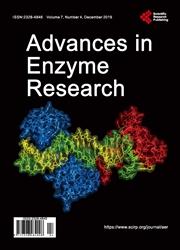Proteolytic Enzyme Combination Reduces Inflammation and Oxidative Stress and Improves Insulin Sensitivity in a Model of Metabolic Syndrome
引用次数: 4
Abstract
Chronic, low-level inflammation may be an independent marker of Metabolic Syndrome (MetS). Systemic Enzyme Therapy (SET), the oral administration of proteolytic enzymes, is safe and effective in the management of inflammation. Therefore, the effects of SET, as Wobenzym®, on the prevention and treatment of inflammation and other metabolic risk factors were assessed in a rabbit model of diet-induced MetS. Animals were fed a lipid-enriched diet for 8 weeks during which they were administered a vehicle control (control group) or Wobenzym either throughout the study period (prevention group) or beginning at the 5th week, after the development of biomarkers of MetS (treatment group). At the 8th week, both prevention and treatment groups demonstrated improved insulin sensitivity relative to the control group and reduced serum C-reactive protein (CRP) and glycosylated hemoglobin (HbA1c, P < 0.001). At 8 weeks, the prevention group, but not the treatment group, exhibited reduced total cholesterol and oxidative stress, measured as serum malondialdehyde (P < 0.001). Triglycerides and free fatty acids were reduced in both the treatment (P < 0.01) and prevention groups (P < 0.001) relative to the control group at the 8th week. Body weight and blood glucose were not affected. Enzyme therapy may have a positive effect on inflammation, insulin sensitivity, and other metabolic risk factors of MetS.在代谢综合征模型中,蛋白水解酶组合减少炎症和氧化应激并改善胰岛素敏感性
慢性、低水平炎症可能是代谢综合征(MetS)的一个独立标志。全身酶疗法(SET),即口服蛋白水解酶,在治疗炎症方面是安全有效的。因此,我们在兔饮食性MetS模型中评估SET作为wob酶®对炎症和其他代谢危险因素的预防和治疗作用。动物喂食富含脂肪的饮食8周,在此期间,它们在整个研究期间(预防组)或在met生物标志物形成后的第5周(治疗组)开始使用载体对照(对照组)或wob酶。在第8周,预防组和治疗组均表现出胰岛素敏感性较对照组改善,血清c反应蛋白(CRP)和糖化血红蛋白(HbA1c, P < 0.001)降低。在8周时,预防组而非治疗组表现出总胆固醇和氧化应激(以血清丙二醛测量)的降低(P < 0.001)。第8周时,治疗组和预防组的甘油三酯和游离脂肪酸均较对照组降低(P < 0.01)。体重和血糖没有受到影响。酶治疗可能对炎症、胰岛素敏感性和其他代谢危险因素有积极作用。
本文章由计算机程序翻译,如有差异,请以英文原文为准。
求助全文
约1分钟内获得全文
求助全文

 求助内容:
求助内容: 应助结果提醒方式:
应助结果提醒方式:


